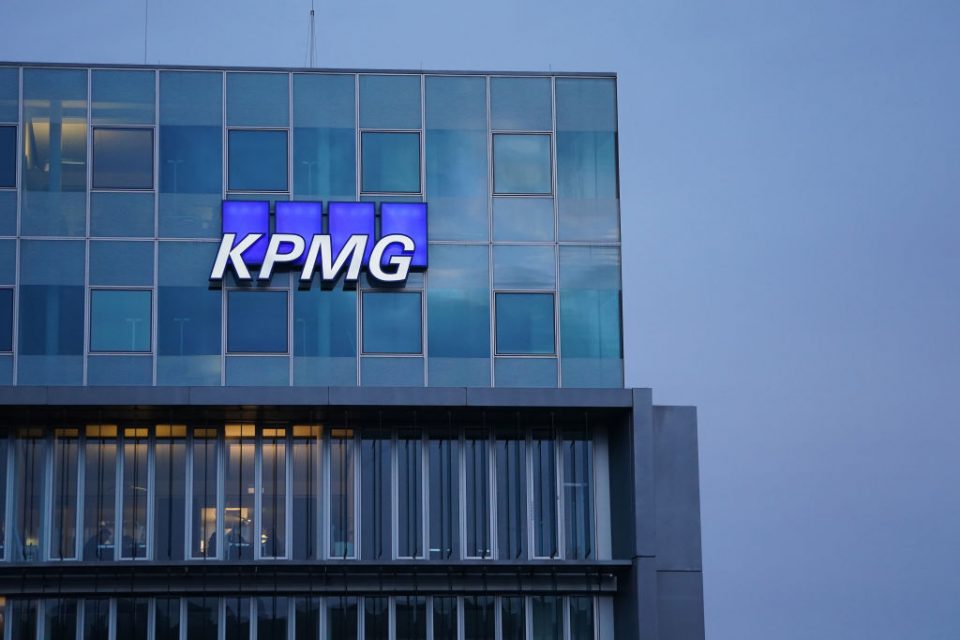Datasite executive Merlin Piscitelli on the UK’s fintech funding boom and the future of M&A

British fintech investment across M&A deals, private equity (PE) and venture capital (VC) has boomed as the country emerges from the pandemic, soaring in the first six months of 2021 to four times the $5.9bn invested during the whole of 2020.
Investment in UK fintech has reached an all-time high as firms in the industry have attracted a staggering $24.5bn in the first half of the year across the highest volume of deals on record.
Total deals exploded to 283 in the first six months of the year – the highest on record, according to data from KPMG – with a bumper cash injection buoyed by an M&A deal by Refinitiv, valued at almost $15bn.
Merlin Piscitelli has overseen the high-profile M&A deals taking place in the recent months as the chief revenue officer at Datasite, a technology company used to facilitate around a fifth of the global volume of M&A deals.
He gave City A.M. some insights into the key M&A trends and developments to watch out in the UK.
What has M&A activity been like so far this year, in light of the pandemic?
Dealmakers were understandably cautious during the global pandemic, especially at the beginning, as lockdowns triggered volatility across markets and uncertainty within boardrooms.
But M&A didn’t take a long break – with the availability of safe vaccinations and the easing of restrictions, this first half has been one of our busiest ever, in fact.
There is unparalleled access to private capital and debt driving the buoyant deal market, which is complimented by strong corporate balance sheets and dry powder that continue to seek opportunities.
And favourable interest rates and confident capital markets, backed by government stimulus funding, continue to enhance the dealmaking environment.
The pandemic has also accelerated environmental, social, and governance (ESG) considerations and this is becoming increasingly important to the success of M&A transactions.
Any organisation considering M&A activity in 2021 needs to investigate and mitigate ESG concerns if it wants its deal to succeed.
Have the types of M&A deals changed compared to pre-pandemic market conditions?
While governments offered economic support packages for distressed businesses and sectors to stay afloat, financial support and guaranteed credit lines are winding down and there may be an uptick in restructuring activities.
Distressed deals, including company restructurings and bankruptcies, comprise 17 per cent of activity on Datasite’s platform, compared to the typical pre-pandemic 7 per cent.
There’s also been greater cross sector convergence as businesses acquire technology, talent, new production capabilities or innovative start-ups – so joint ventures and strategic acquisitions are likely to continue, as we head into 2022.
Cross-border deals are also likely to make a comeback, now that Brexit and US elections are complete, vaccines are available, and some business travel returns.
SPACs seem to be a real buzzword in the city – what does the future of SPACs look like, particularly in London?
Last year, SPACs raised over $75bn, nearly twice the amount they did over the past decade combined; and more recently, accounted for 17 per cent of global deal value in Q1 2021. Yet, the bulk of activity has largely taken place in the US.
Despite highly skilled talent and a strong entrepreneurial spirit, the EMEA region has struggled to make investment capital accessible, compared to the US, so EMEA companies, especially early stage technology companies, are now viewed as potential SPAC targets.
However, regulators on both sides of the pond are considering stricter regulations around SPACs. In April, the US Securities and Exchange Commission (SEC) provided new guidance on how SPACs should account for the warrants issued as part of their IPOs, and it may also restrict safe harbour protections around forward-looking statements granted to SPACs in their merger filings.
Here in the UK, the FCA is consulting the rules surrounding SPACs and recently announced changes expected to strengthen investor protections.
Additionally, SPACs are not without some growing pains. Some recent mergers have not performed well, highlighting the need for better due diligence, investor support, and public readiness.
Still, some argue that London and indeed the UK needs to loosen the restrictions around SPACs to offer greater choice and keep London competitive with other stock markets. The 2021 UK Listing Review shows that only four SPACs were listed in the UK in 2020, raising an aggregate total of £0.03bn and goes on to indicate that ‘the UK is losing out on home-grown and strategically significant companies coming to market in London’ without SPACs.

US companies have had an increasing role in several UK M&A deals – is this a sign of things to come?
The UK continues to attract significant sums of inbound M&A investment, especially from the US, its biggest inbound investor, with deals worth €41.8bn in Q1 2021, well ahead of the €26bn deal value generated by UK investors. Japan (€6.2bn) and Sweden (€5.2bn) were among the other top overseas bidders active in the UK market.
Inward investment, particularly from US private equity firms who have plenty of dry powder, has been driven in part by a falling pound and uncertainly due to Brexit, which has meant lower valuations for some UK companies.
However, as the UK economy continues to rebound, there will be more strategic deals and opportunities.
Let’s zoom in on the tech sector. Do you think big tech regulation will hold back M&A activity?
The government has made several announcements about its intention to better regulate tech, including a desire to put in place better frameworks to effectively monitor M&A deals, particularly those involving big tech companies acquiring smaller businesses, as well as greater regulatory scrutiny when it comes to valuations that seem unusually high.
Any proposed regulations will be subject to intense industry debate, and it could take years before they are enacted. Still, public bodies will be keeping a close eye on digital M&A deals going forward and that will certainly have an impact on the market.